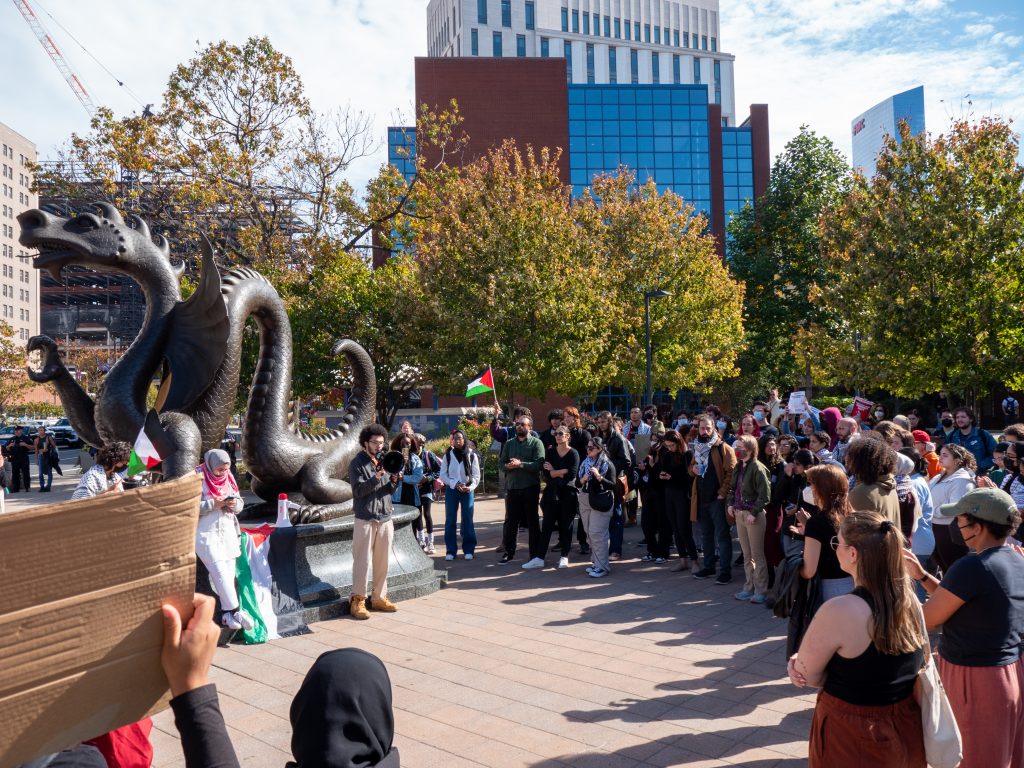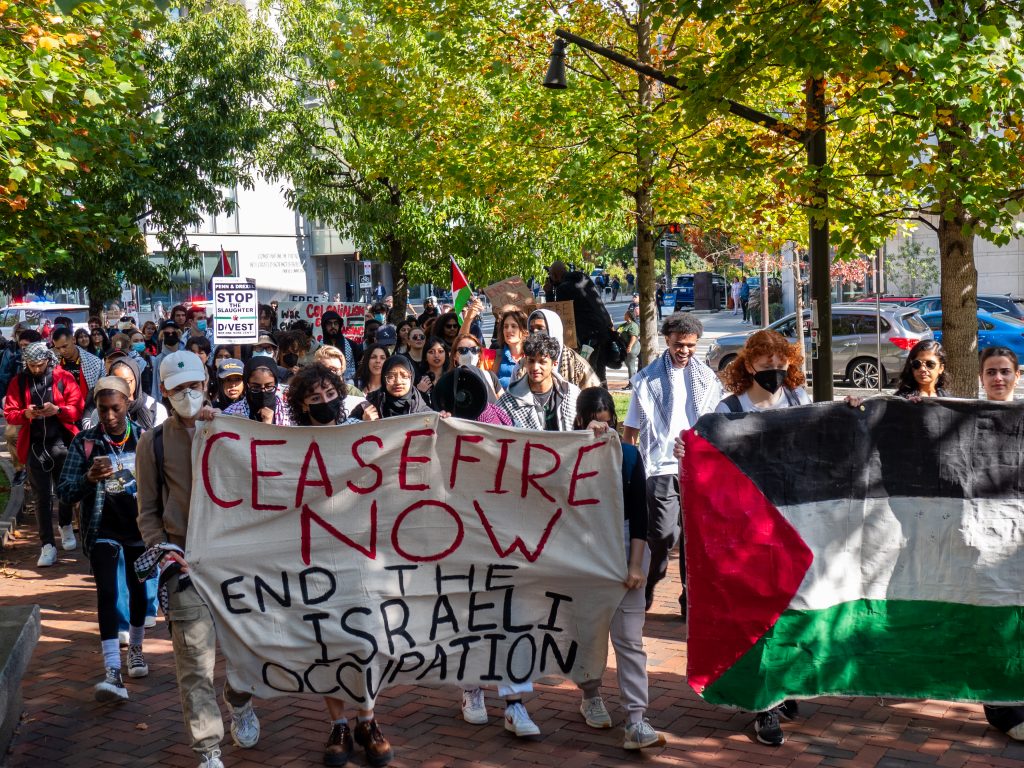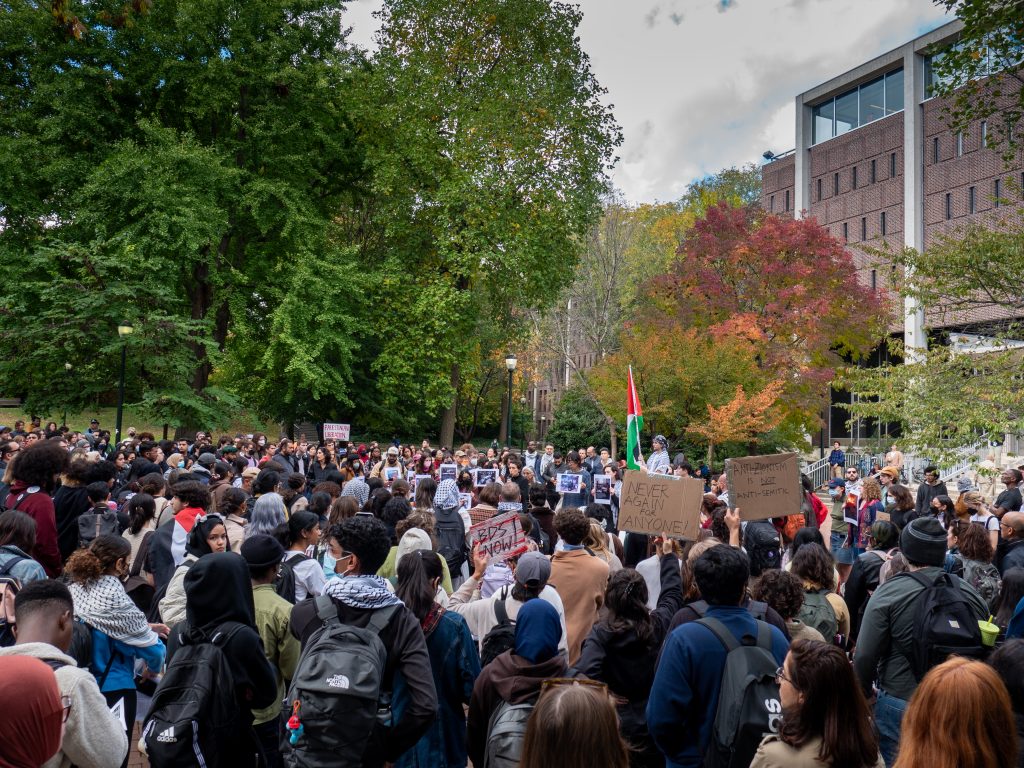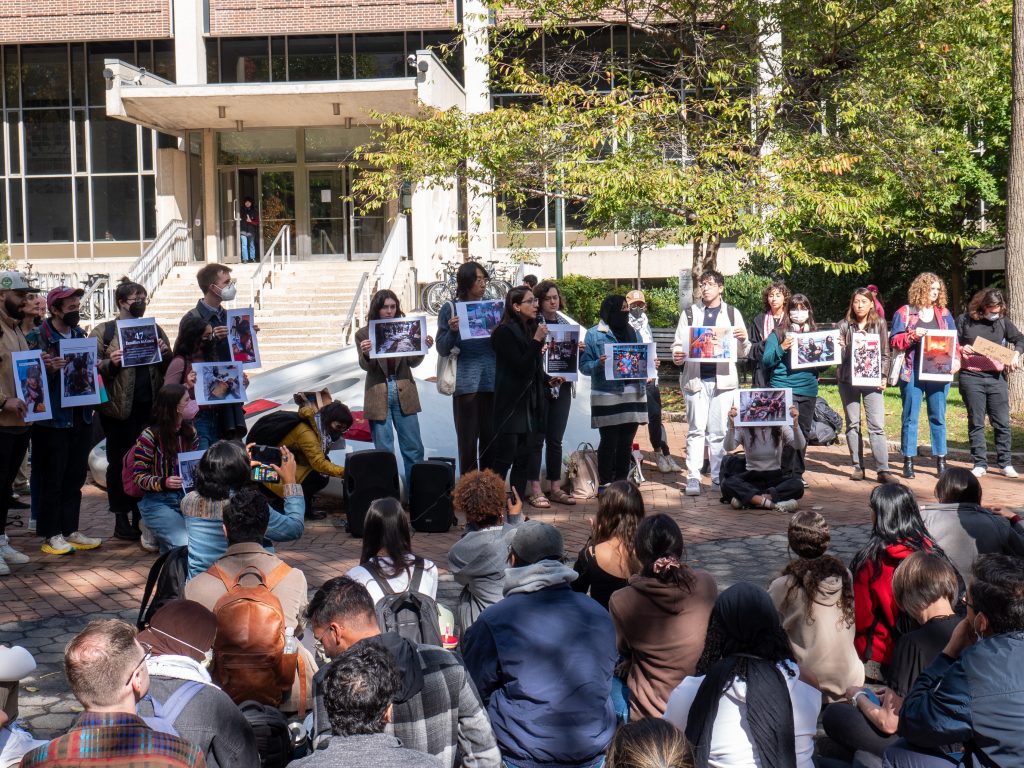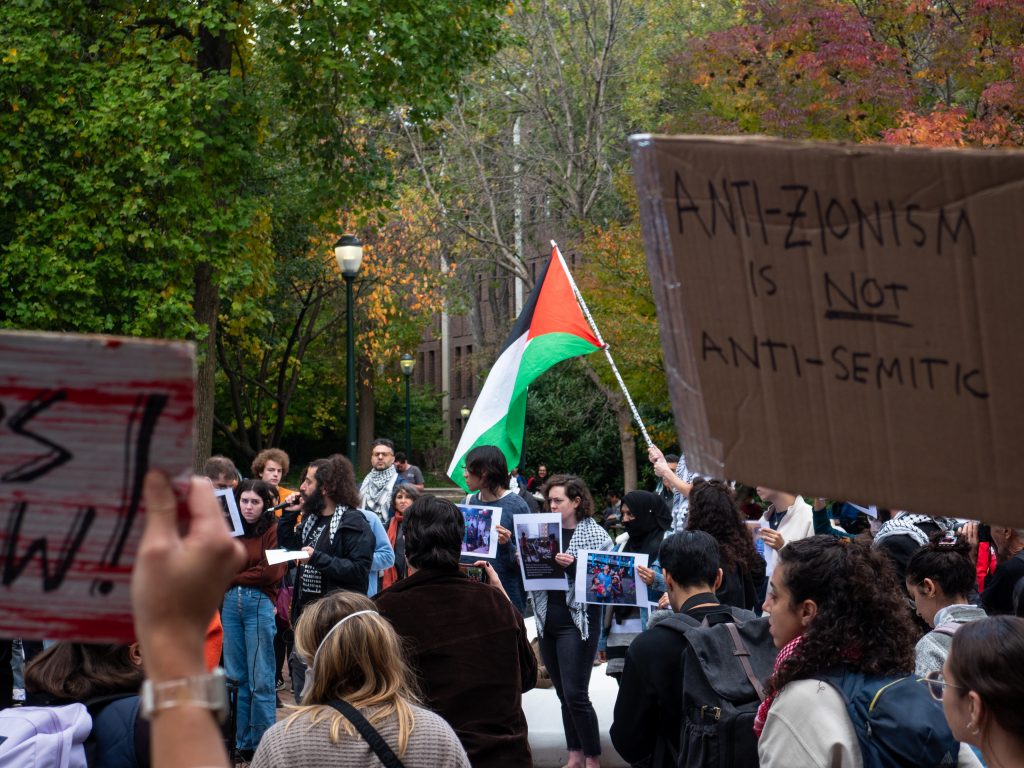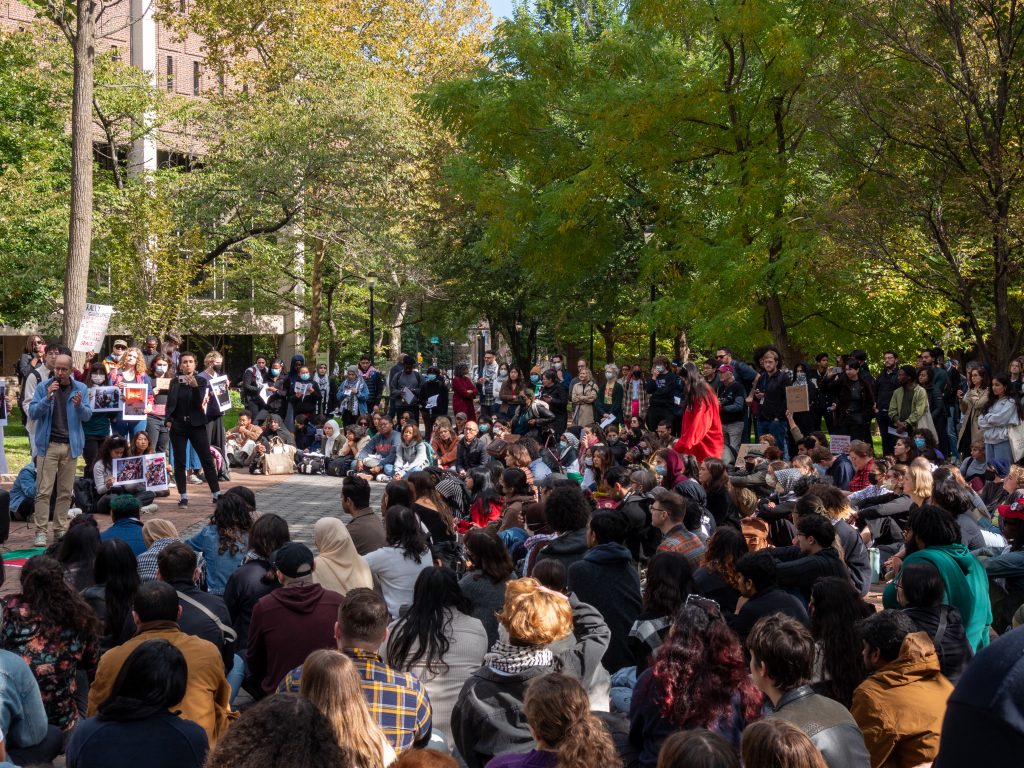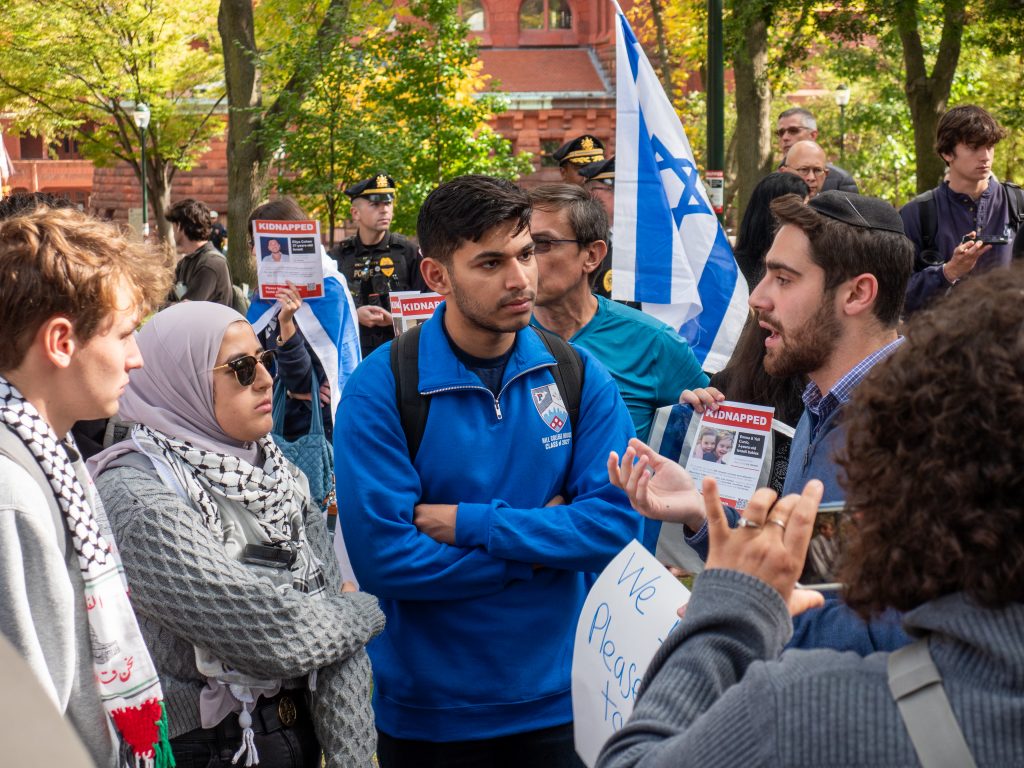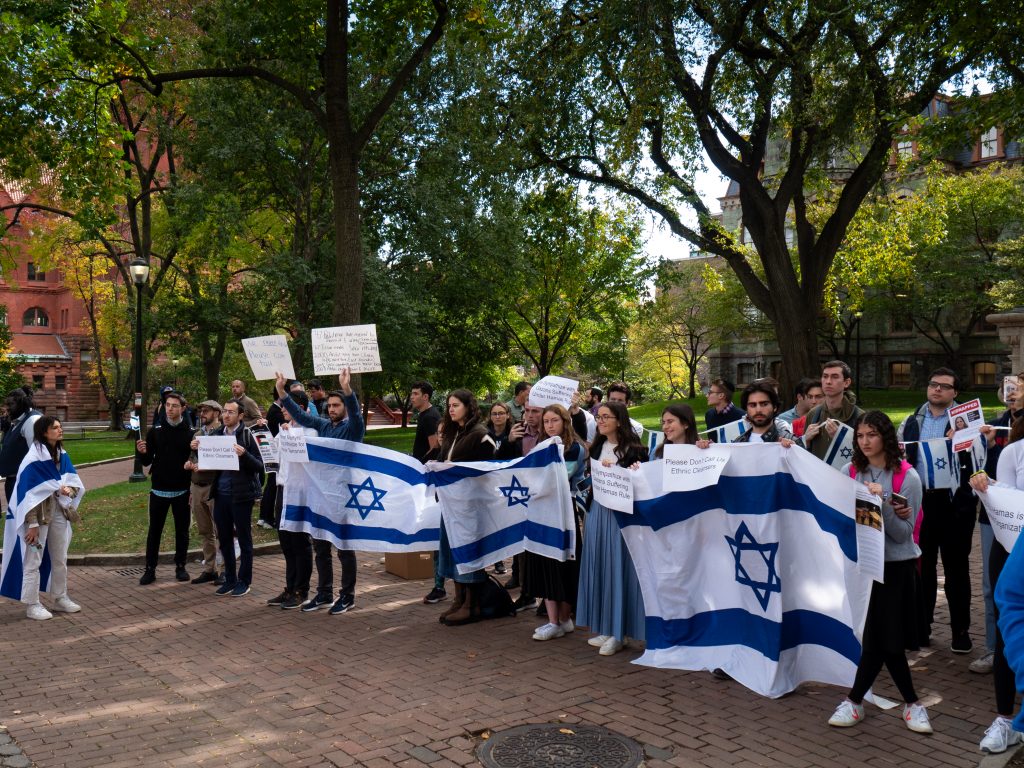
Jimmy Donaldson — better known as Mr. Beast — held up a Drexel University DragonCard to his nearly 20 million followers on the YouTube channel Beast Philanthropy on Nov. 12.
“This card alone,” Mr. Beast states, “has saved over three million people from malnutrition.”
The student ID belonged to Evan Ehlers, Drexel alumnus and founder of the charitable organization Sharing Excess.
In collaboration with Sharing Excess, Beast Philanthropy has committed to donating 30 million dollars in food. Dedicated to preventing food waste and feeding the hungry, but in need of financial support, Ehlers’ team at Sharing Excess reached out to Mr. Beast with a record-breaking idea: creating the world’s largest food distribution. From there, a partnership was launched.
Through their existing warehouse, Sharing Excess has rescued over 14 million pounds of food, sorting through produce daily. In their newest endeavor with Beast Philanthropy, they’re taking on Hunts Point Produce Market in New York City, the largest in the world.
Their first distribution in NYC was their biggest one yet; as Ehlers emphasizes in the video, they finally have “enough food to actually make a huge dent in the problem.”
Now, Beast Philanthropy donates over two million meals a month.
As a graduate of Drexel’s Close School of Entrepreneurship, Ehlers shared valuable insights into his journey and the lessons he learned along the way.
When Ehlers started Sharing Excess as a student, it was just a way to use the excess meal swipes in his account; he found himself wanting to offer the food to anyone who needed it.
He took some of the tips he learned from his major — “give it a name, take some videos… try to inspire other students to do the same thing.” From there, it snowballed.
When he began hitting bureaucratic walls regarding the university allowing meal swipe donations, Ehlers started reaching out to his friends who were cashiers at grocery stores and cafes, such as Trader Joe’s and Saxby’s. He and a group of students started picking up food that was perfect quality but being thrown away and gave it out to community organizations.
Ehlers would utilize his grandma’s car daily between classes: “I would Tetris the boxes in the back, and I always had to leave a little room at the top so I could see out the windshield. It was probably a little dangerous.”
Their work expanded through word of mouth, and they began organizing fundraisers and making local partnerships. When the pandemic hit, there was a great increase in food insecurity; jobs were lost, and food was simultaneously wasted as businesses closed. Throughout the pandemic, Sharing Excess became the backbone of the food distribution scene in Philadelphia, known for being incredibly reactive.
“Every time we’d get that bat signal, there’s food around, we’d go,” Ehlers explained.
Now, the organization has grown to thirty-five employees and continues to distribute food in 26 states. They have partnered with many foundations and organizations, including Mr. Beast’s, to make this happen; at this moment, every dollar donated to Sharing Excess lets them donate 20 pounds of food, and they’re raising about 2.7 million dollars a year.
Ehler was recently featured in Forbes’ 2023 list of 30 Under 30, which gave the organization national exposure. The video on Beast Philanthropy’s YouTube channel has garnered 13 million views in three weeks, which resulted in even more exposure; people have reached out to Ehler from 47 different cities across 17 countries, looking to implement some form of Sharing Excess. Now, he faces the exciting challenge of scaling the organization to an international level.
When asked about how current students at Drexel could work to impact their community as he did, Ehlers’ advice was simple: “If you’ve identified a problem, don’t let it sit in the back of your mind. Get up and try to do something about it today.”
During its earliest stages, Ehlers shared that he struggled to believe an organization like Sharing Excess could change the world, even at a smaller level. However, he realized that change starts with small actions, and every effort contributes to a larger impact over time.
He also emphasized the value of leveraging Drexel’s resources. After he presented his idea for Sharing Excess, the Close School provided Ehlers with six months of co-op, funding and office space on the fourth floor of Pearlstein Learning Center to develop it further.
“It’s kind of like the co-op that never ended,” he remarked, “because I’m still doing it to this day.”
Ehlers’ parting words suggested that current Drexel students join and support our chapter of Sharing Excess, which continues to make a tangible difference locally by addressing food insecurity and waste.
Humza Imam, current junior and president of Sharing Excess at Drexel, shares some of their current initiatives: “We have pop-ups at the Dragon Statue and on Lancaster Walk every other Friday… we’re working with the overarching organization now to do pop-ups at the Dornsife Center to engage with the local community outside of campus.”
“Volunteering together is a great way to make friends while helping your community,” Imam added.
Ehlers’ entrepreneurial journey, from gathering extra meal swipes as a Drexel student to having Sharing Excess’s story heard by millions, underscores the transformative nature of seemingly small initiatives. The partnership with Mr. Beast is only the beginning for this organization, and the future holds limitless opportunities for growth, making this the perfect time for current students to get involved.
“To see that there are students to this day collecting those donated meal swipes… it’s just such an awesome feeling to know that something you started can have a legacy,” Ehler stated.

